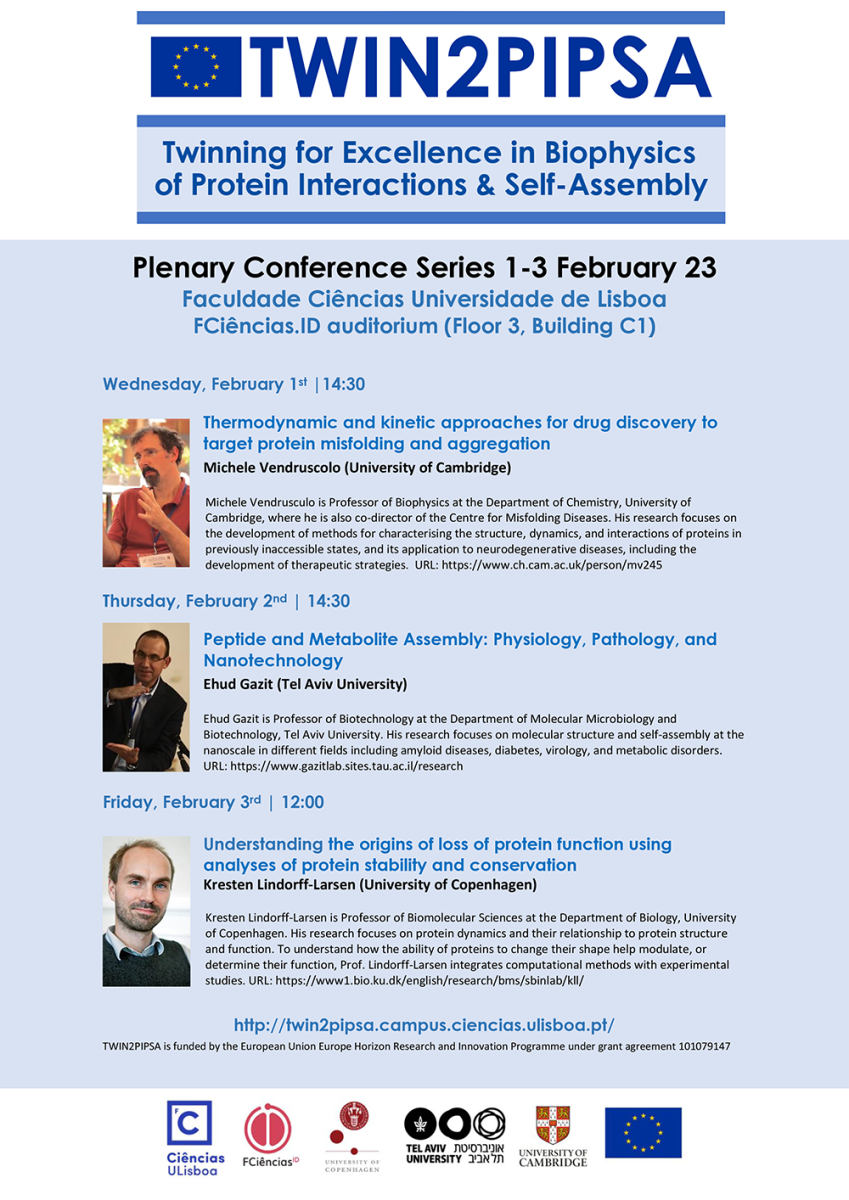Wednesday, February 1st | 14h30
Thermodynamic and kinetic approaches for drug discovery to target protein misfolding and aggregation
Michele Vendruscolo (University of Cambridge)
Thursday, February 2nd | 14h30
Peptide and Metabolite Assembly: Physiology, Pathology, and Nanotechnology
Ehud Gazit (Tel Aviv University)
Friday, February 2nd | 12h00
Understanding the origins of loss of protein function using analyses of protein stability and conservation
Kresten Lindorff-Larsen (University of Copenhagen)

Proteins are the workhorses of cells. These macromolecules have complicated 3D structures that directly influence the proteins’ functioning. The folding and misfolding of proteins is linked to a plethora of so-called conformational diseases including cataracts, metabolic disorders and neurodegenerative pathologies. Understanding the mechanisms of healthy and pathological self-assembly is key to modulating protein interactions that will underlie the rational design of protein-based biomaterials and therapeutic antibodies to treat these pathologies. The EU-funded TWIN2PIPSA project will enhance Portugal’s experimental and computational capabilities for research and innovation in the field through twinning with three universities that are global leaders.

